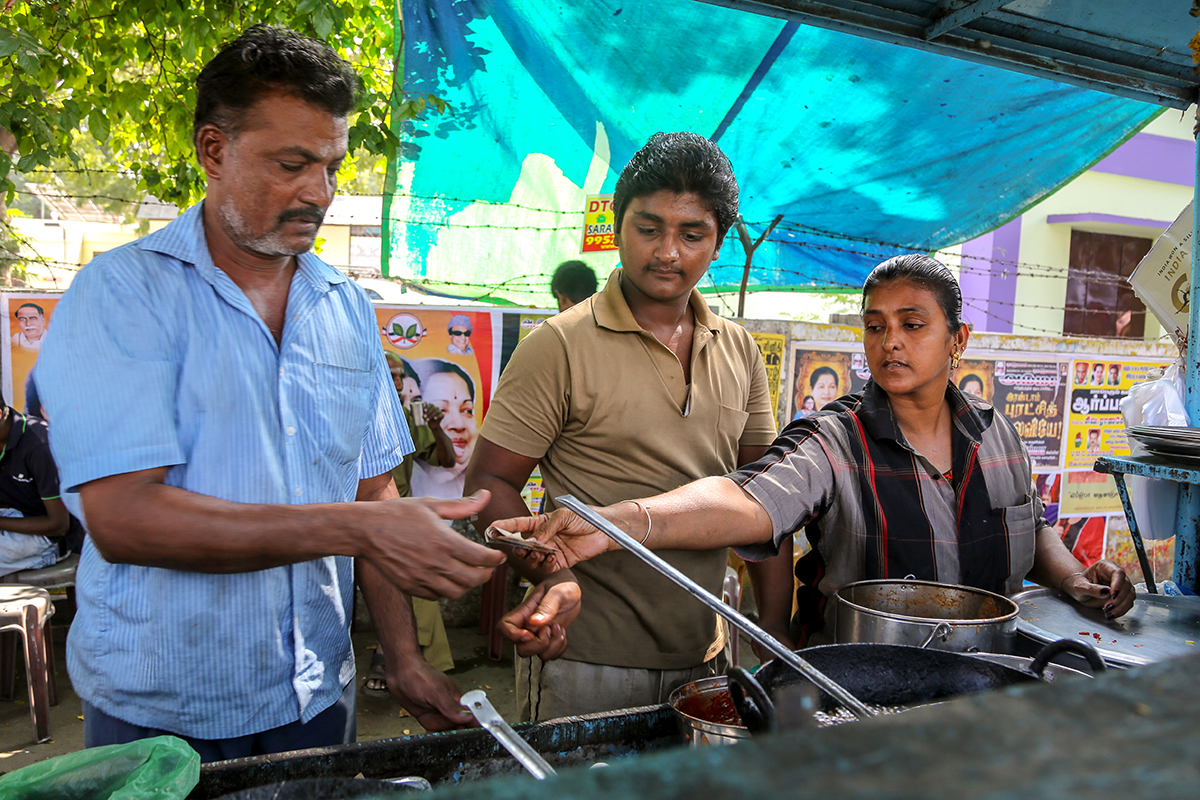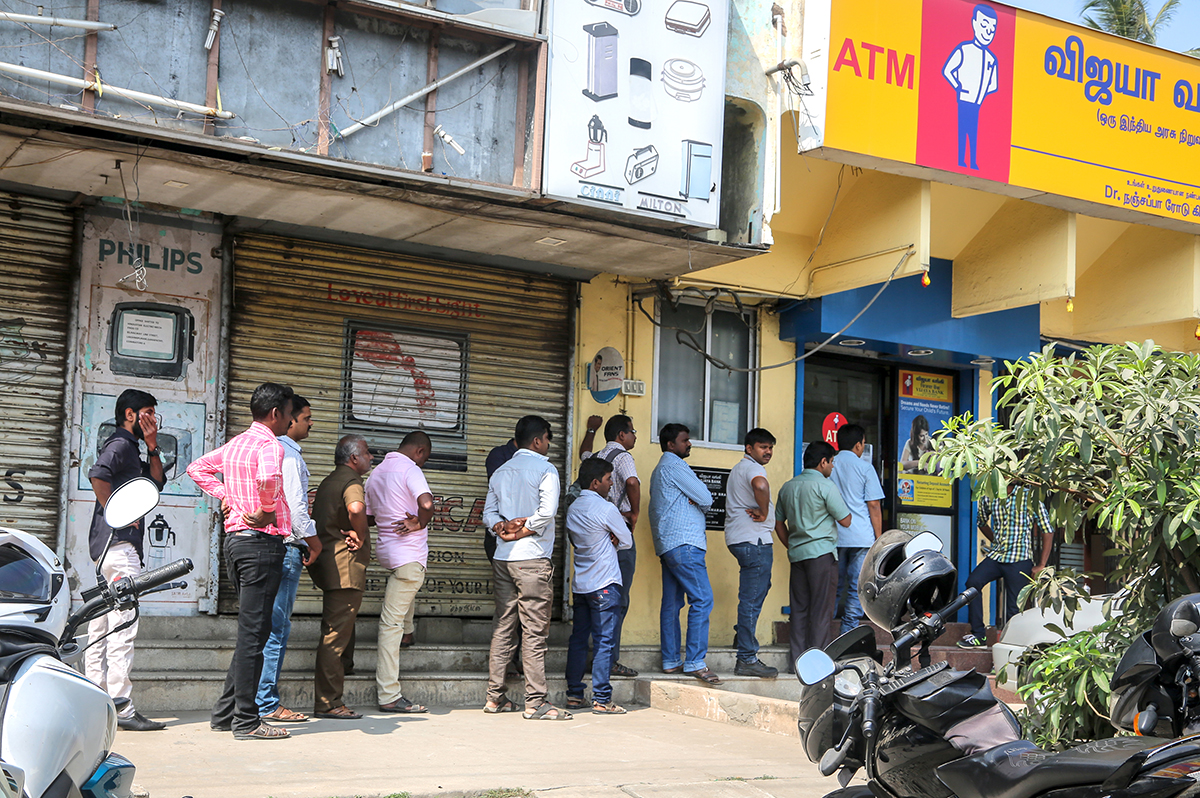
Sahana David Menon, GPJ Sri Lanka
Geethanjali Sukumar hands money to her husband, J. Sukumar, while they and their son, 17, work at their roadside food stall in Coimbatore City on Jan. 7, 2017. Geethanjali’s family found that business had drastically gone down after the demonetization was announced, and if it continues for a few more weeks, they don’t think they will be able to stay in the city.
COIMBATORE, INDIA — It’s Abdul Kadeer’s day off from his job at a garment factory, and he is spending it trying to access his own money. There are four ATMs on the street, but all of them are closed, and, like many others in India, he is frustrated about Prime Minister Narendra Modi’s move to demonetize rupees.
“My off days are miserably spent on roads in search of working ATMs and long lines outside the ATMs since the day that the demonetization was announced by the prime minister,” Kadeer, 54, says.
More than three months into the demonetization initiative, long lines at ATMs and banks persist, frustrating those without access to electronic (debit/credit card) payments and crippling small businesses that do most transactions in cash.
The policy, announced Nov. 8, banned 500- ($7.50) and 1,000-rupee ($15) notes, rendering 86 percent of the nation’s currency null and void. The notes could be redeemed for other currency by Dec. 30, and through the redemption of the large notes, hidden funds — estimated to be a quarter of the economy — would be brought out of the shadows to be taxed. The action has caused a rush on ATMs and continues to create hardships for many people in their day-to-day lives.
R. Chithambaram, a street vendor selling ready-made garments outside a private hospital, said that because his money was in large notes and couldn’t be used, he had to beg neighbors to pay for funeral rites for his wife, who died within two weeks of the policy announcement. He came out of mourning to work so he could repay his neighbors, but he hasn’t had much luck: Because of the currency crunch, in three days, he sold only one dress.
Geethanjali Sukumar’s business also is hurting. She and her husband moved to Coimbatore, in Tamil Nadu state in south India, seven years ago from a village near the Madurai district, about 210 kilometers (130 miles) away, in search of a better life and to send their son to a good school. They run a roadside food stall, but their business is operating at a loss after the demonetization.
“If this continues for few more weeks, we may have to hit our sacks back to our village,” she says.
She says the policy is hurting small businesses and workers more than those who hide money offshore.
“No working-class person, I guess, is having a Swiss bank account or any black money business,” she says. “Have you ever seen a rich person standing outside the ATM or at the long lines at a bank? All rich people will do their dealings simply by showing a fancy plastic card they have in their wallets, but what will the working-class people like us do?”



Despite the chaos, some shop owners support demonetization.
Shri Kannan, who runs a wholesale shop at the Anna Market here, says these are short-term issues and thinks the worst is over.
“Politically this was a risky move for the government, and I’m sure the government is aware of that, and they were very conscious when they were taking this move. One of the main purposes of this act is to destroy the black money market and corruption. As citizens, we should support the government for our own betterment and for the betterment of the future generations,” he says.
C. Balasubramanian, vice president of the law and taxation department of the Indian Chamber of Commerce and Industry Coimbatore, says demonetization will force 30 percent to 40 percent of the shadow economy into the official economy.
“We have to go through this temporary chaos and unfavorable situation to set our country’s economy on a stable place for it to grow,” Balasubramanian says. “It is very important that our economic transactions are properly recorded and taxed.”
Some suggest that the government should have considered the policy’s effect on the average citizen, and have printed more smaller denomination notes because of demand.
“The idea to put a full stop to the corruption is more than welcoming, and we all support demonetization, but government should have done some prearrangement like printing the new notes in advance and making arrangements to open all the closed ATMs in advance,” says J. Sukumar, Geethanjali Sukumar’s husband.
Street vendor Chithambaram agrees.
“This poorly executed demonetization move has caused unrecoverable losses to the lower-working-class people like me,” he says. “I think this may take a very long time to heal.”
Sahana David Menon, GPJ, translated all the interviews from Tamil.






